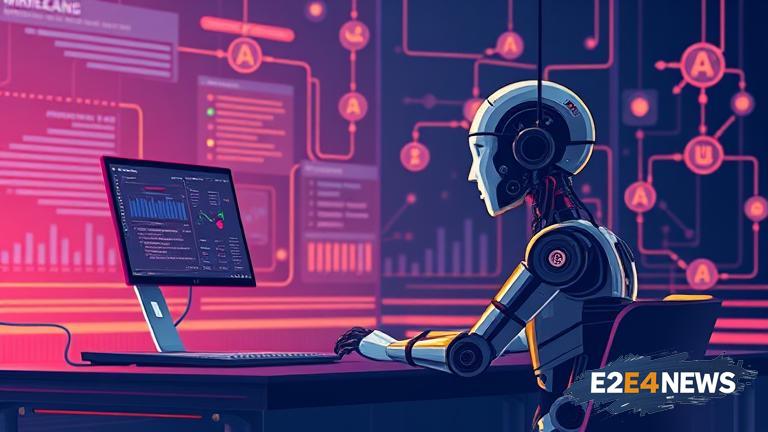The integration of artificial intelligence in the hiring process has become a significant trend in recent years. Many companies are now leveraging AI-powered tools to streamline their recruitment processes, making it more efficient and cost-effective. One of the most notable applications of AI in hiring is the use of automated interviewers, which can conduct initial screenings and assessments of candidates. This technology uses natural language processing and machine learning algorithms to analyze a candidate’s responses and provide insights to hiring managers. The use of AI in interviews can help reduce biases and ensure a more objective evaluation of candidates. Moreover, AI-powered interviewers can conduct multiple interviews simultaneously, freeing up human recruiters to focus on more strategic tasks. However, some experts have raised concerns about the potential limitations and risks of relying on AI in the hiring process. For instance, AI algorithms can perpetuate existing biases if they are trained on biased data. Additionally, the lack of human interaction in AI-powered interviews may lead to a lack of emotional intelligence and empathy in the hiring process. Despite these concerns, many companies are embracing AI-powered hiring tools, citing their ability to improve the candidate experience and reduce time-to-hire. Some of the key benefits of AI-powered interviewers include their ability to provide personalized feedback to candidates, as well as their capacity to analyze large amounts of data to identify top talent. Furthermore, AI-powered interviewers can help companies to better understand their candidates’ skills and abilities, enabling them to make more informed hiring decisions. The use of AI in hiring is not limited to large corporations, as many startups and small businesses are also adopting these technologies to stay competitive. As the job market continues to evolve, it is likely that AI will play an increasingly important role in the hiring process. In fact, some experts predict that AI will become a standard tool in recruitment, much like applicant tracking systems and resume screening software. Nevertheless, it is essential for companies to carefully consider the potential risks and limitations of AI-powered hiring tools, ensuring that they are used in a way that is fair, transparent, and respectful of all candidates. The future of hiring is likely to be shaped by the intersection of human intuition and AI-driven insights, enabling companies to make better hiring decisions and improve the overall candidate experience. With the rise of AI-powered interviewers, it is clear that the hiring process will never be the same again. As AI continues to transform the job market, it is essential for companies to stay ahead of the curve and adapt to the changing landscape of recruitment. The use of AI in hiring is a significant trend that is likely to have far-reaching implications for the future of work. In conclusion, the integration of AI in the hiring process has the potential to revolutionize the way companies recruit and hire talent, enabling them to make more informed decisions and improve the overall candidate experience.
